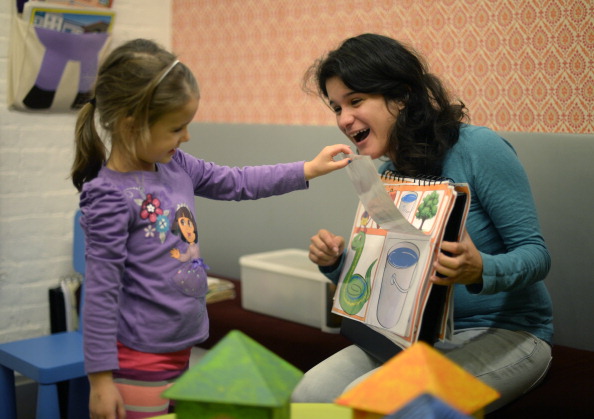Early Childhood Expert Erika Christakis On How To Choose The Right Preschool

For many parents of young kids, this is a season of anxiety, as they navigate how to find the best preschool or daycare for their children while also juggling concerns about affordability, access and quality. Erika Christakis, early childhood educator and author of “The Importance of Being Little”, is here to help. In her new book, she says the way we educate preschool-aged kids today focuses too much on schooling and not enough on learning.
But, as she says, “parents have much more power than they realize to help their children thrive if they stay focused on how children really learn — through playful, caring relationships.” Here are some questions she suggests parents ask while visiting an early learning program:
- Do you see the young child?
- Do you see signs of children’s thinking and interests around the room, such as: examples of their artistic expression, photos of their explorations, or children’s words transcribed verbatim as captions under their drawings?
- How much of the art project on the wall reflects the handiwork of the child, and how much seems done by the teacher?
- Is the room over-stimulating? Is there a lot of adult-focused stuff on the walls, such as posters with grown-up platitudes, bulletin boards cluttered with instructions, class rules, mottos, lists, and charts? Who are those materials for? Kneel down and take a look around the room from a child’s height and consider what you see.
- Do you hear the young child?
- Do you hear laughter? There might be a reason if you don’t, but it’d better be a good one.
- Do you hear an adult listening patiently to a child’s kooky, rambling, run-on story?
- Listen to how the teacher speaks. Do you hear a lot of one-directional language (“Time to clean up,” or “Come to the table to do your collage”) or more open-ended language that invites the child to drive the conversation (“Tell me about your drawing”)? Children use higher-level language structures when deeply engaged in play than at Circle Time or doing paper-and-pencil seatwork.
- Does the environment invite exploration, fantasy, and joy?
- Do you see a cozy space to be calm and quiet? A place to feel strong and powerful (such as a loft that can be a tower)?
- Can you picture an imaginary creature living happily in the classroom, like a troll under a bridge, or a fairy hiding in an alcove? Is there room and time for pretend play?
- Do you see signs of nature? Natural light? Plants?
- Are the schedule and pacing child-sized?
- Are the transitions and expectations for self-care appropriately “child-sized” or are they geared to adults? If you’re not sure, ask “What child development principles guide the schedule?”
- Do children have long, uninterrupted stretches of time to play?
- Do the teachers hurry the children to something new when play begins to unravel or do they help coach the children to stick with it?
- Do relationships matter?
- Are families welcome at any time? Do you get a good vibe when you walk in the door?
- Are children’s friendships taken seriously — do teachers help children cultivate and repair them, or do they tend to separate kids who are having problems?
- Do teachers know children generally (“this is what four-year-olds usually do”) and specifically (“Emma sometimes gets a little cranky after lunchtime”)?
- Can the school and classroom routine respond flexibly to a family’s unique stresses and challenges?
- Do you see teachers on the floor with children, or are they just monitoring the room from a standing or seated position?
- Do I need to worry?
Don’t forget that schooling and learning aren’t the same things. We can’t always find or afford our vision of an ideal program. The good news is that it doesn’t have to matter: Young children learn in all kinds of environments, including less-than-ideal ones, if their core relationships are strong and they have time to play in an open-ended and exploratory way at home. The kind of parent who worries about preschool selection is also likely to be a loving, engaged, and observant parent. Leverage those qualities to enjoy time with your child and to offset the rote learning and pressures we find in far too many early childhood classrooms. The science of child development is on your side and don’t let anyone tell you otherwise! Preschoolers are social beings and they learn best from people who love them and from things that genuinely engage them.
Erika Christakis is an early childhood educator at the Yale Child Study Center and the author of the recently released “The Importance Of Being Little: What Preschoolers Really Need from Grownups.”


